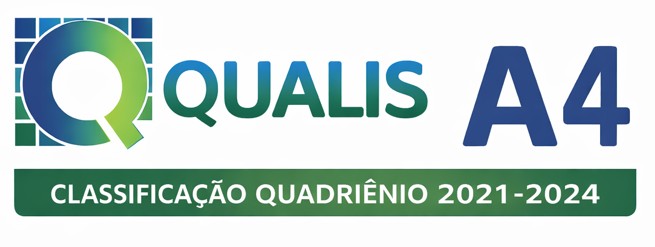Educação de Campo e Educação Indígena: conquistas históricas
Palavras-chave:
Direitos Sociais. Afirmação Identitária. Processo educacional.Resumo
A Constituição Federal de 1988 assegura os direitos sociais das populações tradicionais, afirmando a necessária educação de qualidade. Documentos posteriores reafirmaram a importância da educação do campo e indígena incluindo, entre as diretrizes, práticas pedagógicas que valorizem a interculturalidade e o bilinguismo. As culturas tradicionais passam por um processo de invisibilidade pelo preconceito crescente advindo da urbanização e modernização industrial que os coloca como “atrasados‟ ou vivendo em função da cidade. Diante disso, o objetivo geral do trabalho é compreender a importância da educação de campo e indígena. Os objetivos específicos são: apresentar os aspectos históricos da educação de campo e indígena, bem como, as conquistas sociais; descrever as semelhanças entre a educação do campo e a educação indígena e analisar os desafios da interculturalidade e a importância da efetivação da educação de campo e indígena. O artigo encontra-se estruturado em um breve histórico sobre a educação do campo e a educação indígena, depois um comparativo para compreender as semelhanças entre ambas. Por fim, se faz a análise da dimensão do pluriculturalismo na educação e a importância da educação indígena e do campo. A pesquisa foi realizada a partir da metodologia qualitativa, sendo os dados coletados pela técnica da revisão bibliográfica e documental. Com a pesquisa foi possível compreender que a educação do campo e a educação indígena são garantidoras de direitos sociais, preservação cultural e afirmação identitária, pois por meio de práticas pedagógicas singulares que consideram a realidade do povo a qual se aplica, descoloniza o processo educacional e apresenta as multiculturas brasileira apresentada ao contexto geral da sociedade.
Palavras-chave: Direitos Sociais. Afirmação Identitária. Processo educacional.
Historical achievements: Field education and indigenous education
Abstract: The Federal Constitution of 1988 guarantees the social rights of traditional populations, affirming the necessary quality education. Later documents reaffirmed the importance of rural and indigenous education, including, among the guidelines, pedagogical practices that value interculturality and bilingualism. Traditional cultures go through a process of invisibility due to the growing prejudice arising from urbanization and industrial modernization that places them as “backward‟ or living in function of the city. Therefore, the general objective of the work is to understand the importance of field and indigenous education. The specific objectives are: to present the historical aspects of rural and indigenous education, as well as social achievements; describe the similarities between rural education and indigenous education and analyze the challenges of interculturality and the importance of implementing rural and indigenous education. The article is structured in a brief history of rural education and indigenous education, then a comparison to understand the similarities between both. Finally, an analysis is made of the dimension of pluriculturalism in education and the importance of indigenous and rural education. The research was carried out using a qualitative methodology, with data collected using the technique of bibliographic and documental review. With the research, it was possible to understand that rural education and indigenous education are guarantors of social rights, cultural preservation and identity affirmation, because through unique pedagogical practices that consider the reality of the people to which it applies, it decolonizes the educational process and presents the Brazilian multicultures presented to the general context of society.
Keywords: Social Rights. Identity Affirmation. Educational process.










